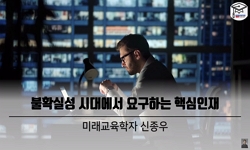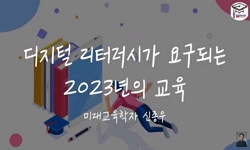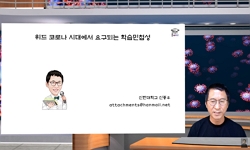본 연구는 아동기 자녀를 둔 부모들을 대상으로 부모교육 요구를 알아보고자 하였다. 선행연구를 토대로 하여 부모 교육 요구에 영향을 미치는 관련 변인으로 배경변인, 자녀양육태도, 양육...
http://chineseinput.net/에서 pinyin(병음)방식으로 중국어를 변환할 수 있습니다.
변환된 중국어를 복사하여 사용하시면 됩니다.
- 中文 을 입력하시려면 zhongwen을 입력하시고 space를누르시면됩니다.
- 北京 을 입력하시려면 beijing을 입력하시고 space를 누르시면 됩니다.
자녀 양육 태도 및 양육 스트레스에 따른 부모교육 요구 : 아동기 자녀를 둔 부모를 중심으로 = (The) parent education demands due to the parental attitudes and stresses : Focusing on the parents who have children
한글로보기https://www.riss.kr/link?id=T10116954
- 저자
-
발행사항
서울 : 성신여자대학교 교육대학원, 2003
-
학위논문사항
학위논문(석사) -- 성신여자대학교 교육대학원 , 교육학과 가정교육 전공 , 2003
-
발행연도
2003
-
작성언어
한국어
- 주제어
-
KDC
590 판사항(4)
-
발행국(도시)
서울
-
형태사항
iii, iii, 77p. : 삽도 ; 26cm
-
일반주기명
참고문헌 수록
-
소장기관
-
0
상세조회 -
0
다운로드
부가정보
국문 초록 (Abstract)
본 연구는 아동기 자녀를 둔 부모들을 대상으로 부모교육 요구를 알아보고자 하였다. 선행연구를 토대로 하여 부모 교육 요구에 영향을 미치는 관련 변인으로 배경변인, 자녀양육태도, 양육 스트레스를 설정하였고, 종합적으로 부모교육 요구에 관련 변인들이 어떠한 영향을 미치는지에 초점을 두었다.
이를 검증하기 위해 본 연구에서는 배경변인 척도, 자녀 양육 태도 척도, 양육 스르레스 척도, 부모교육 요구 척도로 설문을 구성하여 조사하였다. 연구대상자는 수도권에 거주하고 있는 아동기 자녀를 둔 부모들로, 총 224명을 최종 분석자료로 사용하였다. 표집된 자료에 대해서 SPSS WIN 10.0 프로그램을 이용하여 빈도, 백분율, 평균, t-검증, 일원변량분석, 사후검증, 적률상관관계, 회귀분석 등이 실시되었다.
본 연구의 분석결과를 간단히 요약하면 다음과 같다.
첫째, 배경 변인에 따른 자녀 양육태도, 양육 스트레스, 부모 교육 요구를 살펴본 결과 유의한 차이가 있었다.
먼저 배경 변인에 따른 자녀 양육 태도를 살펴보면 애정적 양육 태도는 아버지가 어머니보다, 고등학교 졸업이상의 학력을 가지고 있는 부모와 직업을 가지고 있는 부모가, 맏자녀의 나이가 고등학생 이하인 부모가 더욱 애정적인 양육 태도를 보이고 있었으며, 자율성 조장태도는 가계소득이 300만원 미만인 부모와 동거형태가 ‘부부만’ 살고 있는 경우에서 높게 나타났다. 독립심 권장태도는 자신과 자녀만이 살고 있는 부모와 맏자녀가 대학생이상의 연령일 때 높은 점수를 보였다.
배경 변인에 따른 양육 스트레스를 살펴본 결과, 총 자녀수가 3명 이상인 부모가 양육 스트레스에 대한 전반적인 인지도가 높았다. 양육 스트레스의 하위영역별로 살펴보면 전업주부이고, 부모의 연령이 낮을수록 피로 및 우울성향을 높게 인지하고 있었고, 부모의 학력이 낮을수록, 월 평균 가계소득이 적을수록, 자녀의 수가 3명 이상인 부모일수록 자녀로 인한 심리적인 상처를 많이 받고 있는 것으로 나타났다.
배경변인에 따른 부모교육 요구의 차이를 살펴본 결과, 20, 30대의 부모와, 가계의 소득이 200만원 미만이거나 300만원 이상일 경우 전체 부모교육에 대한 요구가 많았다. 하위 영역별로 살펴보면 건강관리를 위한 부모 교육 요구에서는 종교가 있는 부모가, 월 평균소득이 200만원 미만인 부모에게서 많이 나타났다. 자녀의 발달적 특성에 대한 이해에 대한 요구는 가계소득이 낮을수록 높았다. 부모-자녀 관계를 위한 정보 및 기술에 대한 요구에서는 20대의 부모와 소득이 200만원 미만인 부모, 맏자녀의 연령이 낮은 부모일수록 높았다. 올바른 생활 태도 관리에 대한 요구에서는 어머니가 아버지보다, 월 평균 소득이 200만원 미만이거나 300만원 이상인 부모가, 맏자녀의 연령이 낮을수록 높았다.
둘째, 자녀 양육 태도에 따른 양육 스트레스와 전반적인 부모교육 요구를 살펴본 결과, 독립심 권장 태도가 높은 부모와 자율성 조장 태도가 낮은 부모에게서 피로 및 우울 성향의 스트레스가 높았으며 애정적 양육 태도가 높은 부모에게서는 유의한 스트레스 변인을 찾지 못하였다. 부모 교육 요구의 하위 영역에서는 애정적 양육 태도를 보이는 부모가 자녀의 건강 관리, 자녀의 발달적 특성에 대한 이해, 부모-자녀 관계를 위한 정보 및 기술에 대한 요구가 높게 나타나고 있어, 이들 영역에서 부모 교육을 받길 더 원함을 볼 수 있었다.
셋째, 양육 스트레스에 따른 부모 교육 요구의 차이를 살펴 본 결과, 스트레스에 따라서 부모교육 요구에 차이가 있음을 알 수 있었다. 스트레스 하위 영역별로는 부담감 및 구속감의 스트레스를 높게 보이는 집단이 자녀의 건강 관리와 올바른 생활 태도 관리에 대한 부모교육 요구가 높았고 피로 및 우울 성향의 스트레스 영역에서는 스트레스가 높은 집단이 올바른 생활 태도 관리에 대한 부모교육 요구가 높음을 알 수 있었다.
넷째, 아동기 자녀를 둔 부모의 부모 교육 요구에 영향을 미치는 변인들을 살펴본 결과 전체 부모 교육 요구는 부모의 연령, 월 평균 가계소득에서 차이를 보였으며, 또한 독립심 권장 태도, 애정적 양육 태도가 차이를 보였고, 부담감 및 구속감에 따른 양육 스트레스가 유의한 영향을 미치는 것으로 나타나고 있었다.
부모 교육 요구를 하위 영역별로 살펴 본 결과는 다음과 같다. 자녀의 건강 관리에 대한 부모교육 요구는 부모의 연령, 월 평균 가계 소득, 독립심 권장태도, 애정적 양육 태도, 부담감 및 구속감의 양육 스트레스가 유의한 영향 변인으로 밝혀졌다. 발달적 특성의 이해에 대한 부모 교육 요구에서는 월 평균 가계 소득, 부담감 및 구속감의 양육 스트레스가 유의한 영향 변인으로 밝혀졌다.
부모-자녀 관계를 위한 정보 및 기술에서는 맏자녀의 연령, 독립심 권장 태도가 영향 변인으로 밝혀졌다. 올바른 생활 관리를 위한 부모 교육 요구에서는 부모의 연령, 독립심 권장 태도, 애정적 양육 태도, 부담감 및 구속감, 피로 및 우울 성향의 양육 스트레스가 영향을 미치는 것으로 나타났다.
본 연구는 부모 교육의 필요성이 대두되고 있는 시점에서 아동기 자녀를 둔 부모의 인구 사회학적 배경변인 및 자녀 양육 태도와 스트레스를 세분화시켜 하위 영역별 부모 교육 요구에 미치는 영향을 파악하였다.
이상의 결과를 볼 때, 앞으로의 부모 교육 프로그램의 개발과 적용은 부모와 자녀를 둘러싼 인구 사회학적 배경, 자녀 양육 태도, 양육 스트레스를 고려하여 이루어지는 것이 바람직하다고 보인다.
다국어 초록 (Multilingual Abstract)
This research was studied for understanding the education demands by the parents who had children. Refering to the pre-researched papers, This research postulated the variation factors that affected to the parent education demands as the background va...
This research was studied for understanding the education demands by the parents who had children. Refering to the pre-researched papers, This research postulated the variation factors that affected to the parent education demands as the background variables, the parental attitude, the stresses. Moreover, for overall consideration, focused on the influences of the variation factors related to the parent education demands.
For verifying these results, this research was performed by answering the questions related to the degrees of changeable background variables, the parental attitude, the stresses, and the parent education demands. The subjects for this research were the parents who lived in the Metropolitan area and had children. Totally 224 parents participated in this research. The collected data from the subjects have been analyzed by using the SPSS WIN 10.0 program, in the ways of such as frequency, percentage, average, t-verification, ANOVA, Duncan’s test, Regression.
The results of this research can be summed up as follows.
The first, there were some differences of the parent attitude according to the variation factors of background. We were able to find the more passionate attitudes on nurturing children from the father who had childhood’s children than the mother, from the parents who possessed attainments equal to or higher than those of high school graduates, from the parents who had their job, and from the parents who had the eldest child who was under high school student. In addition, the attitude of promoting children’s self-regulation was remarkably showed in the family with earning money less than 3 million won a month and in the parents who lived separately from their children. The attitude of promoting children’s independency was remarkably seen in the parents with an eldest child of at least a university education.
In the aspect on the parenting stresses according to variation factors of background, these stresses were highly recognized by the parents who had more than 3 children. On considering the subcategories of the parenting stresses, the parents who were housewives or were younger felt more fatigue and depression in their life. Moreover, in the case that the parents were not well-educated, made less money, and had more than 3 children, the parents tended to be hurt psychologically by their own children.
In the aspect on the parent education demands according to variation factors of background, the overall parent education was highly demanded by the parents who were 20’s or 30’s, by the family earned less than 2million or more than 3 million won a month. On analyzing the subcategories, the parent education for their health was highly demanded by the family had their own religion, by the family earned less than 2 million won. In addition, the understanding on the developmental stages of children was highly requested by the parents who earned less money. The technology and information for parent-children relationship were highly requested by the parents who were 20’s, by the parents earned less than 2 million won a month, and by the parents had younger eldest child. In the aspect of the management for correct life attitude, the demand of parent education on it was founded on mother than father, on the family earned less than 2 million won or more than 3 million won a month, and on the family had younger eldest child.
The second, as a result of study on the parenting stress and the parent education demands based on their parenting attitudes, the parent who had the high level of attitude on promoting children’s self-regulation and the low level of attitude on promoting children’s independency were intensely recognizing the stresses of fatigue and depression. In addition, in the aspect of demanding parental education, the parents who had affectionate attitude expressed the noticeable passion on learning for the health of their children, the understanding on the developmental characteristics of their children, and the technology and information for the correct relationship between parents and children.
The third, as a result of study on the parent education demands on the parenting stresses, there were some differences on demanding the parent education according to the degrees of their stresses. On considering the factors of stresses, the group that remarkably showed the stresses of responsibility and repression had high level of demanding parent education for management of their children’s health and management of correct life attitude. Moreover, the group that remarkably showed the stresses of fatigue and depression had high level of demanding parent education for management of correct life attitude.
The fourth, as a result of study on the independent variation factors that had influenced on the parent education demands on the parents who had children, the overall demands of parent education were influenced by the variation factors such as the age of parents, the family income per month. The parental attitudes of promoting children’s independency and the affectionate attitude on parenting their children had influenced as factors. In the field of the parenting stresses, the responsibility and repression had influenced as factors.
When considering the parent education demands as particular aspect, the management of children’s health was affected by the age of parents and the family income per month as variation factors, and the parental attitudes were affected by the parent attitudes of promoting children’s independency and the affectionate n parenting attitude. In addition, nurturing stresses were affected by responsibility and repression as variation factors.
In the aspect of the information and technology for parents-children relationship, the age of eldest child in background factors and the attitude of promoting children’s independency in the attitudes of nurturing their children were identified as variation factors on influence. In addition, in the aspect of managing correct life attitude as final subordinate variation factor in the parental educational demands, many factors were identified as variation factors on influence. These factors were followed as: the age of parents in background factors, the attitude of promoting children’s independency and the affectionate parenting attitude and responsibility & repression and fatigue & depression in the parenting stresses.
As these results, the development and application of parent education program in the future should be considered with a sense of values of parents, the social and cultural environment, and the stresses surrounded parents and children.
목차 (Table of Contents)
- 논문개요 = i
- 목차 = i
- I. 서론 = 1
- 1. 문제의 제기 = 1
- 2. 연구 목적 = 4
- 논문개요 = i
- 목차 = i
- I. 서론 = 1
- 1. 문제의 제기 = 1
- 2. 연구 목적 = 4
- II. 이론적 배경 = 7
- 1. 자녀 양육 태도의 개념과 유형 = 7
- 2. 양육 스트레스의 개념과 하위 영역 = 12
- 3. 부모 교육 = 15
- 4. 부모의 양육태도, 양육 스트레스와 부모교육의 요구에 관한 선행 연구 = 19
- III. 연구모형 및 연구문제 = 22
- 1. 연구모형 = 22
- 2. 연구문제 = 23
- 3. 용어의 정의 = 24
- IV. 연구방법 = 27
- 1. 조사 도구의 구성과 내용 = 27
- 2. 조사 대상 및 자료 수집 절차 = 33
- 3. 자료의 분석 방법 = 39
- 4. 연구의 제한점 = 40
- V. 결과 및 해석 = 41
- 1. 배경 변인에 따른 자녀 양육 태도, 양육 스트레스, 부모교육 요구의 차이 = 41
- 2. 자녀 양육 태도에 따른 양육 스트레스 및 부모교육 요구의 차이 = 55
- 3. 양육 스트레스에 따른 부모교육 요구의 차이 = 58
- 4. 배경 변인, 자녀양육태도, 양육 스트레스가 부모교육 요구에 미치는 상대적 영향력 = 60
- VI. 결론 및 논의 = 65
- 참고 문헌
- ABSTRACT
- 부록











